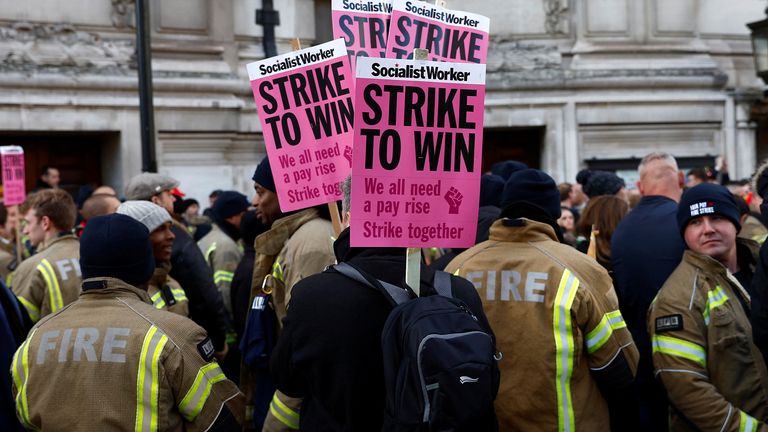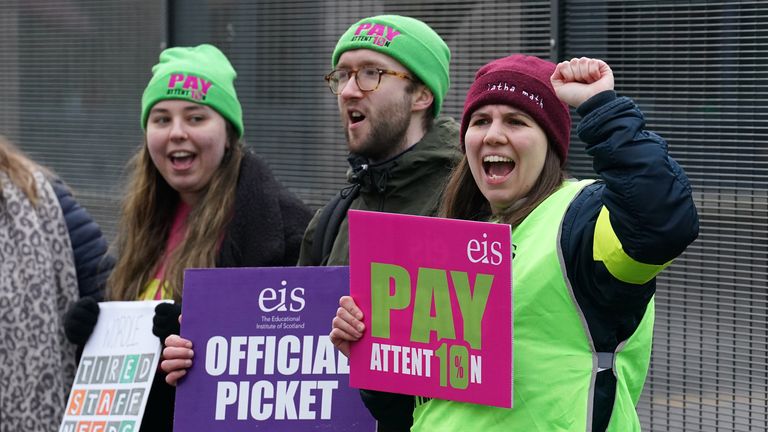Firefighters strike averted as they accept 12% pay rise
A majority of FBU members voted for a new offer of a 7% rise backdated to July last year and a 5% increase from July this year after voting in January to go on strike when offered a 2% pay offer.
Monday 6 March 2023 16:12, UK
Firefighters have accepted a 12% pay rise and will no longer carry out their first national strike in 20 years.
The Fire Brigades Union (FBU) said about 96% of its members who took part in the ballot voted in favour of the new pay offer. There was an 84% turnout.
They will get a 7% rise backdated to last July and from July this year will receive another 5% increase.
The deal was a "significant shift" from a previous offer of just 2%, the union said, but added the backdated pay would still be a real-terms pay cut.
Firefighters had voted overwhelmingly in January for a nationwide strike, with a date yet to be set, as they said they have had more than a decade of real-terms pay cuts.
It would have been their first national walkout since 2003.
FBU general secretary Matt Wrack said: "The overwhelming vote by FBU members to accept the improved offer means that the dispute is resolved on terms that are favourable to firefighters.
"We pay tribute to members of our union for their determination and unity throughout the past year. Firefighters will now receive two pay increases, including nine months of back pay.
"The FBU leadership has been determined not to sugarcoat the offer. For the current year, 7% is still another real-terms pay cut. For the following year (July 2023 to July 2024), when inflation is forecast to be lower, 5% may amount to a slight increase in real-terms pay."
Read more: Who is striking and when?
Mr Wrack added to Sky News that the FBU is now looking to the government to "invest in training and resources, sufficient staff and decent pay to be able to deliver that".
"We're not there by a long shot, this is a little step forward, but it's not the end of the road by any means," he said.
Rishi Sunak has been facing pressure to end months of strikes over pay and conditions across several sectors, mainly from the public sector, who say they are struggling to cope as inflation soars and their pay remains stagnant.
The government entered talks with the Royal College of Nursing (RCN) in February, which paused nurses' strikes but angered other health unions who said they were not asked to attend the talks.
But last week Health Secretary Steve Barclay sent a letter to the other health unions setting out the government's willingness to discuss a one-off payment for the current financial year and a pay deal for the next financial year in 2023-24.
Ambulance worker strikes planned for this week have been paused in order to hold pay talks with the government.
The FBU and other trade unions have said they will oppose a government bill that will ensure key public services, such as fire, ambulance and rail, maintain minimum safety levels during industrial action.



